Best Practices Articles

Mastering Partner Management: A Comprehensive Career Guidebook for Thriving in the Evolving Landscape of Business Partnerships
Discover the future of partner management in an AI-driven economy, where automation revolutionizes roles while core skills remain crucial. As technology shapes the landscape, compensation structures evolve, favoring adaptable and performance-driven professionals. Growth and adaptability are key attributes for success, and a career in partner management offers excitement in navigating diverse partnerships and driving business growth. Partner managers continue to play a pivotal role in their organizations, using AI for efficiency and data-driven decisions. This series concludes with insights from ZINFI, emphasizing the enduring importance of emotional intelligence, adaptability, and relationship management in the evolving field of managing partners.
Table of Contents
- Understanding partner management
- The importance of building a career in managing partners
- The growth of partner ecosystems worldwide
- The role of AI in enhancing efficiency in partner management
- Conclusion: Why partner management is a promising career path
- Introduction to partner management in large corporations
- The structure of a partner management organization
- The roles of the partner recruitment team, field marketing teams, and partner sales team
- How these roles vary across technology, manufacturing, and finance sectors
- Conclusion: The dynamic nature of partner management roles in different sectors
- Introduction to the different levels of job roles in partner management
- Brief descriptions of the roles and expectations of partner associates, partner sales managers, partner marketing managers, partner ecosystem managers, alliance managers, directors of partnerships, directors of alliances, regional VPs, and global senior VPs
- Conclusion: The diverse roles in partner management and their importance
- Introduction to compensation in partner management
- Approximate compensation ranges for each role are discussed in the previous article
- How compensation is linked to overall business performance
- The variation of compensation from developed to developing countries
- Conclusion: The factors influencing compensation in partner management
- Introduction to the essential skills for partner management
- Detailed discussion on marketing and sales skills, understanding of process automation and management, and capabilities to manage partner management automation platforms like ZINFI.
- The importance of being performance-driven in managing partners
- Conclusion: The role of skills in achieving success in partner management
- Introduction to the importance of emotional intelligence (EQ) in partner management
- Why managing partners is about relationship management.
- The challenges and conflicts in partner ecosystems and the need for EQ to handle them.
- The importance of a global outlook and cultural understanding in managing partners
- Conclusion: The critical role of EQ in partner management
- Introduction to the future of partner management
- How the roles in partner management are evolving with the advent of AI
- The impact of automation on partner management
- The changing scope and compensation in partner management
- Conclusion: The exciting prospects of a career in managing partners in an AI-driven economy
Introduction from Sugata Sanyal, CEO of ZINFI
As the CEO of ZINFI, a world-class partner relationship management (PRM) software provider, I've witnessed first-hand the transformative power of effective partner management. It's a field that's as challenging as it is rewarding, and it's evolving at an unprecedented pace. In response to this rapid evolution, we have compiled a series of seven articles that delve into the intricacies of partner management.
In these articles, we'll explore everything from the basics of managing partners to the roles and compensation structures within the field. We'll discuss the essential skills needed for success, the importance of emotional intelligence (EQ), and the exciting future of partner management in an AI-driven economy.
Whether you're just starting your career in partner management or are a seasoned professional, these articles will provide valuable insights and guidance. They draw on my experiences and the collective wisdom of industry experts and successful partner managers.
The field of partner management is vast and varied, encompassing everything from sales and marketing to relationship management and strategic planning. It's a field that demands a wide range of skills and competencies and offers immense opportunities for those willing to seize them.
In these articles, we'll delve into the specifics of partner management, providing practical advice and actionable insights. We'll discuss the importance of building solid relationships with partners, the role of technology in managing partners, and the strategies for navigating the challenges and conflicts that inevitably arise.
We'll also explore the future of partner management, discussing how AI and automation are transforming the field and what this means for those working in it. We'll discuss the changing roles and compensation structures and how those who are adaptable and eager to learn can thrive in this evolving landscape.
I invite you to join me on this journey through the world of partner management. These articles will provide valuable insights and guidance to deepen your understanding, hone your skills, or chart a new career path.
So, without further ado, let's dive into the fascinating world of partner management.

The Growing Field of Partner Management: A Career of Opportunities
In the dynamic world of business, partner management, also known as partner relationship management (PRM), has emerged as a crucial function that drives growth and success. It is a field that offers a wealth of opportunities for those adept at building and nurturing relationships. This article delves into partner management, its importance, the growth of partner ecosystems worldwide, and the role of artificial intelligence (AI) in enhancing efficiency in this field. Partner management oversees business partnerships, using partner relationship management (PRM) software to facilitate sales transactions and marketing activities with partners. The benefits of partner management include increased brand awareness, more potential sales, and mutually beneficial arrangements.
- Understanding Partner Management
Partner management is a strategic approach to managing business partnerships. It involves overseeing and optimizing all interactions with business partners to drive sales, increase profits, and create mutually beneficial relationships. PRM systems are web or cloud-based and include a partner portal, a customer database, and other tools. PRM systems track leads, revenues, opportunities, sales metrics, inventory, pricing, discounting, and operations. PRM helps companies streamline partner sales processes and minimize duplication within the business.
- The Importance of Building a Career in Partner Management
A career in partner management is lucrative and rewarding. As businesses increasingly rely on partnerships to expand their reach and capabilities, the demand for skilled partner managers is rising. These professionals are pivotal in managing partner relationships, ensuring mutual benefits, and driving business growth. Successful PRM implementation requires collaboration between dealers, vendors, and channels. Investing in compatible software and providing support and training are essential for PRM success. Keeping information updated within the PRM system helps with decision-making regarding channel partners.
- The Growth of Partner Ecosystems Worldwide
The global business landscape has seen a massive surge in partner ecosystems. Companies collaborate more than ever, leveraging each other's strengths to achieve common goals. This has led to a significant increase in the need for effective partner management, creating many opportunities for professionals in this field. The PRM market has expanded over the past decade to cater to the different needs and benefits of companies relying on partner relationships. ZINFI, Allbound Inc., Impartner Inc., Magentrix Corp., and others offer PRM solutions.
- The Role of AI in Enhancing Efficiency in Partner Management
AI is revolutionizing various aspects of business, and managing partners is no exception. AI-powered tools are being used to streamline processes, automate tasks, and provide valuable insights, making partner management more efficient and effective. These tools help partner managers track leads, manage sales metrics, monitor partner performance, and more. PRM software includes content management, lead distribution, deal registration, marketing development, promotions, pricing, and sales analytics. It also features partner portals, access management, collaboration tools, dashboards with performance management tools, and integration with various business tools.
- The Impact of AI on Partner Management Jobs
While AI automates specific tasks, it is not replacing partner management jobs. Instead, it makes them more efficient and allows partner managers to focus on strategic aspects of their roles. AI is a tool that enhances the capabilities of partner managers, not a threat to their jobs. Companies in hardware technology, software technology, telecommunication, manufacturing, and many other industries have adopted AI-powered PRM solutions.
Partner management is a promising career path in modern business. With the growth of partner ecosystems and the advent of AI, the field is evolving rapidly, offering numerous opportunities for those willing to adapt and grow. Whether you are just starting your career or looking to switch fields, partner management provides many opportunities. As AI continues transforming this field, professionals who can leverage these advanced tools to enhance efficiency will likely be in high demand. If you are a relationship-oriented individual with a knack for strategy and a willingness to embrace new technologies, a career in managing partners may be the perfect fit for you. The future of partner management is bright, with AI playing a significant role in shaping its trajectory.

The Structure of Partner Management in Large Corporations: A Cross-Sector Analysis
In the intricate business world, the structure of partner management within large corporations is a critical element that drives massive growth and success. This article delves into the organization of partner management in billion-dollar companies, detailing the roles of various teams and how these roles change across different sectors. Understanding these dynamics is crucial for anyone involved in managing partners, as it provides insights into the inner workings of large corporations and the opportunities available within them.
Roles within the Partner Management Structure:
Large corporations often have a comprehensive structure for partner management. This structure typically includes a partner recruitment team, field marketing teams, and a partner sales team, each uniquely managing and nurturing business partnerships. These teams work in tandem to ensure a steady influx of valuable collaborative activities with partners that promote the company’s visibility and attractiveness in the market and drive sales.
- The partner recruitment team functions much like an inside sales team. They are responsible for identifying and recruiting new partners, ensuring the company’s partner ecosystem remains robust and productive.
- Field marketing teams complement these efforts by running events and promotions to engage partners and potential partners. They play a crucial role in maintaining the company's visibility and attractiveness in the market.
- The partner sales team, often including sales engineering resources, works closely with partners to drive sales. They provide partners with the necessary support and resources to sell the company's products or services effectively.
- A dedicated distribution management team focuses on various aspects of product inventory and sales in companies selling through distributors. This team may also include marketing and event marketing resources to drive product demand.
- The partner operations team focuses on overall processes associated with managing partners and ensures that each function runs smoothly. This team manages automation, partner incentives, and commissions for partner sales team members. They provide detailed analytics and business insights on where and how to improve performance and are heavy users of automation and business analytics.
- While the partner legal and finance team may directly report to the CEO or CFO, at times, depending on the complexities of transactions in a region, there could be dedicated finance and legal resources to close contracts and carry out necessary compliance work.
Variation of Roles across Sectors
The roles within partner management can change significantly from one sector to another. For instance, in the technology sector, partner management often involves managing relationships with software developers, hardware manufacturers, and service providers. The focus is on integrating technologies and services to provide comprehensive solutions to customers.
Partner management might also involve managing relationships with suppliers, distributors, and retailers in the manufacturing sector. The aim here is to ensure a smooth production and distribution process. In the finance sector, partner management could involve managing relationships with financial institutions, fintech companies, and investment firms. The goal is to provide customers with appropriate financial services and products.
The Role of Partner Management Software
Partner management software, such as partner relationship management (PRM) systems, significantly streamlines partner management processes. PRM systems provide tools for tracking leads, managing sales metrics, monitoring partner performance, and more. These systems help large corporations manage their extensive partner networks efficiently and effectively.
The Impact of AI on Partner Management
Just as in other areas of business, AI is revolutionizing partner management. AI-powered tools automate tasks, provide valuable insights, and enhance efficiency. This allows large corporations to manage their partner relationships more effectively, increasing profits and growth.
The structure of partner management in large corporations is complex and varies across different sectors. However, a common thread is a focus on building and nurturing relationships to drive growth and success. With the advent of AI and PRM systems, managing these relationships has become more efficient, allowing corporations to leverage their partnerships to their full potential. Whether you're a partner manager in the technology, manufacturing, or finance sector, understanding this structure and its roles is crucial. This knowledge provides insights into the inner workings of large corporations and the opportunities available within them, paving the way for a successful career in managing partners.

Climbing the Ladder in Partner Management: An Overview of Job Roles
In the multifaceted business world, partner management stands out as a field offering diverse roles. From partner associates to global senior VPs, each role is designed to uniquely manage and nurture business partnerships. This article provides an overview of the different levels of job roles in partner management, offering insights into what these roles entail and what is expected of those who hold them.
- Partner associate is typically an entry-level role in partner management. Partner associates assist in managing relationships with partners, supporting sales and marketing activities, and ensuring smooth communication between the company and its partners.
- A partner sales manager is responsible for driving sales through partners. Partner sales managers work closely with partners to identify sales opportunities, provide support, and track sales metrics.
- Partner marketing managers oversee marketing activities with partners. They collaborate with partners to run marketing campaigns, promote products or services, and increase brand visibility.
- Partner ecosystem managers manage the company's network of partners. They focus on building and nurturing relationships with partners, ensuring mutual benefits, and driving business growth.
- The alliance manager is responsible for managing strategic partnerships, and works directly with partners to align strategies, achieve common goals, and create synergies.
- The director of partnerships oversees the company's partnership strategy, identifying potential partners, negotiating partnership agreements, and ensuring the success of partnerships.
- The director of alliances manages strategic alliances, working closely with strategic partners to align strategies, drive joint initiatives, and achieve mutual benefits.
- Regional VPs oversee managing partner activities in a specific region. They manage a team of partner managers, set regional goals, and ensure the success of partnerships in their area.
- Global Senior VP is the highest-ranking role in partner management. They oversee the company's global partnership strategy, manage a team of regional VPs, and ensure the success of partnerships worldwide.
In conclusion, partner management offers diverse roles with unique responsibilities and expectations. From partner associates to global senior VPs, these roles are crucial in managing and nurturing business partnerships, driving growth, and ensuring success.
As AI and PRM systems continue to revolutionize this field, the roles within partner management are evolving, offering exciting opportunities for those willing to adapt and grow. Whether you're just starting your career in partner management or looking to climb the ladder, understanding these roles is the first step toward success.

Compensation in Partner Management: A Cross-Country and Role-Based Analysis
In partner management, compensation is a critical factor influencing career choices and job satisfaction. This article provides an overview of the approximate compensation ranges for various roles in partner management, from partner associate to global senior VP. It also explores how compensation is linked to overall business performances and how it may vary from developed to developing countries. Understanding these dynamics is crucial for anyone involved in managing partners, as it provides insights into the financial aspects of these roles.
- Compensation in Partner Management. Compensation in partner management varies significantly based on the role, the company's performance, and the country. However, it is generally competitive, reflecting the importance and complexity of these roles.
- Role-Based Compensation. This is a high-level summary of how compensation is structured. For exact compensation detail, please check LinkedIn or Salary.com.
- Partner Associates: As entry-level roles, partner associates typically earn a base salary with additional bonuses based on performance. The compensation is competitive, reflecting the importance of these roles in supporting partner management activities.
- Partner Sales Manager: The compensation for partner sales managers is often tied to sales performance. They typically earn a base salary with significant sales commissions and bonuses.
- Partner Marketing Manager: Partner marketing managers usually earn a competitive salary with bonuses based on the success of their marketing campaigns.
- Partner Ecosystem Manager: The compensation for partner ecosystem managers is often tied to the performance of the partner ecosystem. They typically earn a base salary with bonuses based on the success of their partnerships.
- Alliance Manager: Alliance managers usually earn a competitive salary with bonuses based on the success of their strategic alliances.
- Director of Partnerships: The compensation for directors of partnerships is often tied to the overall success of the company's partnerships. They typically earn a high base salary with significant bonuses.
- Director of Alliances: Directors of alliances usually earn a high base salary with bonuses based on the success of their strategic alliances.
- Regional VPs: Regional VPs earn a high base salary with significant bonuses based on the performance of their region.
- Global Senior VP: As the highest-ranking role in partner management, global senior VPs earn a high base salary with significant bonuses based on the company's global performance.
- Link to Overall Business Performance. Compensation in partner management is often linked to overall business performance. This is because partner managers are crucial in driving sales, nurturing partnerships, and contributing to the company's success. Partner managers are often rewarded with bonuses and commissions when the company performs well.
- Variation across Countries. Compensation in partner management can vary significantly from a developed to developing countries. This is due to the cost of living, economic conditions, and market dynamics. However, even in developing countries, compensation in partner management is often competitive, reflecting the importance of these roles.
- The Role of Partner Management Software. Partner relationship management (PRM) systems can be very useful for tracking and managing compensation in partner management and partner ecosystems. These systems provide tools for precisely tracking sales metrics, monitoring partner performance, and calculating commissions and bonuses.
- The Impact of AI on Partner Management Compensation. AI is revolutionizing various business aspects, including partner management compensation. AI-powered tools are used to automate compensation calculations, provide valuable insights into compensation patterns and trends, and enhance efficiency. These tools allow companies to manage payment in partner management more effectively, increasing satisfaction and motivation among partner managers.
In conclusion, compensation in partner management varies considerably by role, the company's performance, and the country. However, it is generally competitive, reflecting the importance and complexity of these roles. With the advent of AI and PRM systems, managing compensation in partner management has become more efficient, allowing companies to reward their partner managers based on specific performance metrics. Whether you're just starting your career in partner management or looking to climb the ladder, understanding the financial aspects of these roles is crucial step in attaining your goals.

Mastering the Skills for Success in Partner Management
In the dynamic field of partner management, possessing the right skills can make all the difference. From marketing and sales skills to understanding process automation and control, these skills form the foundation of a successful career in managing partners. This article delves into the essential skills needed for partner management roles, including the ability to manage partner management automation platforms like ZINFI and the importance of being performance-driven. Whether you're a novice in managing partners or a seasoned professional, honing these skills can propel you toward success.
- Marketing and Sales Skills. In partner management, marketing and sales skills are crucial. These skills enable partner managers to effectively promote their company's products or services, identify opportunities, and drive sales through partners.
- Understanding of Process Automation and Management. With the increasing use of technology in business, understanding process automation and management has become essential for partner managers. This understanding enables them to streamline processes, enhance efficiency, and drive business growth.
- Ability to Manage Partner Management Automation Platforms. Partner management automation platforms, like ZINFI, are becoming increasingly important in managing partner relationships. These platforms provide tools for tracking leads, driving sales metrics, monitoring partner performance, and more. Addressing these platforms is a crucial skill for partner managers.
- Performance-Driven Approach. In partner management, a relentless focus on performance is critical to success. A performance-driven approach encourages partner managers to set and achieve measurable goals, continually drive business growth, and ensure that partnerships realize their full potential.
- Communication Skills. Effective communication is at the heart of partner management. Partner managers must communicate regularly and effectively with partners, team members, and other stakeholders to ensure smooth operations and successful partnerships.
- Relationship Management Skills. Partner management is all about managing relationships. Partner managers must be adept at building and nurturing relationships with partners, resolving conflicts, and ensuring all players in the partner ecosystem benefit from their participation.
- Strategic Thinking. Partner managers must think strategically to align their company's partnership strategy with its business strategy. This involves identifying appropriate potential partners, negotiating partnership agreements, and ensuring the long-term success of partnerships.
- Analytical Skills. Analytical skills enable partner managers to make data-driven decisions. These skills are crucial for tracking sales metrics, monitoring partner performance, and identifying areas for improvement.
- Leadership Skills. Leadership skills are crucial for partner managers, especially for those in senior roles. These skills enable them to lead their teams, drive initiatives, and ensure the success of their partnerships.
- Adaptability is a crucial skill for partner managers in the ever-changing business landscape. They need to adapt to evolving market trends, partner needs, and technological advancements to succeed.
A successful career in partner management requires a diverse skillset including marketing and sales skills, communication skills, the ability to manage partner management automation platforms like ZINFI, and performance-driven behaviors. These and other skills can pave the way for success in this dynamic field. As the business landscape evolves, the development of these skills become increasingly important, presenting exciting opportunities for those willing to adapt and grow. Honing these skills can propel you toward success.
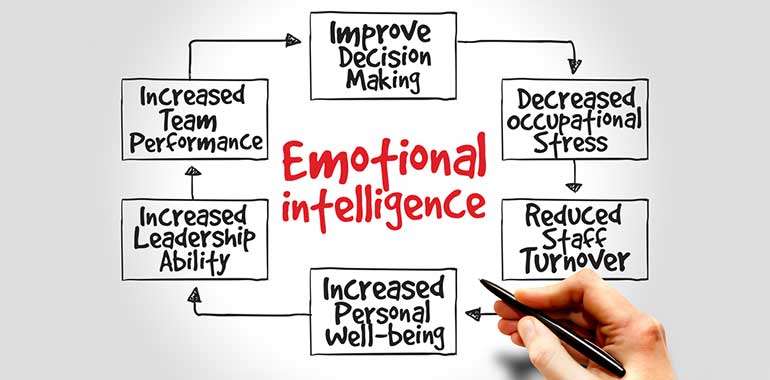
The Power of EQ in Partner Management: Navigating Relationships and Challenges
In the complex world of partner management, emotional intelligence (EQ) – the ability to perceive, use, understand, manage, and handle emotions – plays a pivotal role. Because so much of partner management revolves around relationship management, being able to navigate complex business and emotional situations is crucial. This article explores the importance of EQ in partner management, the challenges and conflicts that occur in partner ecosystems, and the need for leadership qualities. It also highlights the importance of global knowledge and the ability to relate to different cultures. Whether you're an aspiring partner manager or an experienced professional, understanding the role of EQ in partner management can significantly enhance your effectiveness and success.
- The Importance of EQ in Partner Management. EQ is a critical skill in partner management. It enables partner managers to understand and manage their own emotions and those of others, leading to more effective communication, better decision-making, and improved relationships with partners.
- Navigating Challenges and Conflicts. Challenges and conflicts are common in partner ecosystems. However, partner managers with high EQ can navigate these situations effectively, resolving disputes, managing stress, and maintaining positive relationships with partners.
- Leadership Qualities. EQ is closely linked to leadership qualities. Research indicates that leaders with high EQ are more effective in motivating their teams, managing conflicts, and driving performance. In partner management, these leadership qualities are especially crucial for managing partner relationships and achieving business objectives.
- Knowledge and Understanding of Other Cultures. In today's globalized business environment, partner managers often work with partners from different countries and cultures. A global outlook and the ability to relate to other cultures are crucial attributes for partner managers. These traits can enhance their effectiveness in managing international partnerships.
- The Role of EQ in Relationship Management. Relationship management is at the heart of partner management. Partner managers with high EQ tend to be better at building and nurturing strong relationships with partners, leading to more successful partnerships and better business outcomes.
- EQ and Performance. Research has shown that individuals with high EQ tend to perform better in their jobs. In partner management, high EQ translates into more effective communication, better decision-making, and improved relationships with partners – all of which can drive business performance.
- Developing EQ. While some people naturally have high EQ, it is also a skill that can be developed. Strategies for developing and improving EQ include self-awareness exercises, empathy training, and stress management techniques. By developing their EQ, partner managers can enhance their effectiveness and success.
- EQ and Technology. While technology is transforming various aspects of business, the importance of EQ in partner management remains undiminished. Even as partner management becomes more automated and data-driven, understanding and managing emotions remains crucial for managing partner relationships, and likely always will.
EQ can play a pivotal role in partner management and contribute to the success of partner managers and their organizations. High EQ enables partner managers to navigate complex business and emotional situations, manage relationships effectively, and drive business performance. With the increasing globalization of business, the EQ in partner management is likely to be even more important. As the world of partner management continues to evolve, those with high EQ will likely be at the forefront, leading companies toward more successful partnerships and better business outcomes.

The Future of Partner Management: Embracing Change in an AI-Driven Economy
The future of partner management is an exciting journey, especially in an economy increasingly driven by artificial intelligence (AI). To conclude our series on this topic, we will explore the transformative impact of AI on partner management, the evolution of roles, the role of automation, the changing landscape of compensation, and the importance of growth and adaptability.
The Impact of AI on Partner Management
AI is revolutionizing various aspects of business, and partner management is no exception. Integrating AI into partner management is making the process more efficient and effective. AI is automating many routine tasks that were once time-consuming and costly. This saves time and reduces the chances of human error, leading to more accurate and reliable results.
AI is also providing deeper, more valuable insights for decision-making. AI tools can analyze vast amounts of data to identify patterns and trends humans might overlook. These insights can help partner managers make more precise and more informed decisions, leading to better company and partner outcomes.
The Evolution of Roles in Partner Management
As the business landscape evolves, so do the roles in partner management. New roles are emerging, and existing ones are being redefined. This evolution offers exciting opportunities for those willing to adapt and grow.
For instance, the role of a partner manager is no longer limited to managing relationships with partners. With the advent of AI and automation, partner managers are now expected to be data-driven decision-makers. They must leverage AI tools to analyze data, identify growth opportunities, and make strategic decisions.
The Role of Automation in Partner Management
Automation is becoming increasingly crucial in partner management. It is streamlining processes, enhancing efficiency, and changing the way partner managers work. Automation tools, including AI, help manage a broad range of workflows and activities in partner relationships, from communication to sales and marketing.
However, despite these technological changes, the core skills and competencies required for partner management remain critical to success. Partner managers must still have excellent communication skills, a deep understanding of their company's products and market, and the ability to build strong relationships with partners.
The Changing Landscape of Compensation
As roles evolve and automation becomes more prevalent, compensation structures in partner management are also changing. However, performance-driven and adaptable people can continue to thrive in this changing landscape. Companies especially value partner managers who can leverage automation tools to increase sales and revenue, and they are willing to reward these individuals with generous compensation packages.
The Importance of Growth and Adaptability
In the evolving world of partner management, individual growth and adaptability are crucial attributes for aspiring employees. The business landscape is constantly changing, and those who can adapt to these changes most readily are more likely to succeed. This means continuously learning new skills, staying up to date on the latest trends, and being open to new and innovative ways of doing things.
The Excitement of Embarking on a Career in Partner Management
Despite the changes, a career in partner management remains an exciting prospect for many people. It offers the opportunity to work with a diverse set of partners, implement tactics and strategies that drive business growth, and navigate the challenges of an evolving business landscape. Partner managers play a crucial role in their companies' success, and this responsibility can bring a sense of fulfillment and achievement.
As the world moves towards an AI-driven economy, the roles in partner management are rapidly evolving. Automation is changing the titles, scope, and compensation of these roles. However, those who love growing and are willing to adapt will never be out of a job. They will find their partner management careers incredibly exciting.
As we conclude our series on partner management, we hope that the insights and guidance provided will help you navigate your career in this dynamic field. Remember, the future of partner management is not just about embracing change but also about leveraging it for growth and success.
Closing Remarks from ZINFI
As we conclude this series on partner management, we at ZINFI would like to express our gratitude for your time and engagement. We've journeyed through the multifaceted world of partner management and explored its various aspects, from the fundamental job roles and responsibilities to the evolving landscape shaped by AI and automation.
Throughout this series, we've underscored the importance of partner management in today's business environment. We've highlighted the critical role of emotional intelligence, the need for adaptability in the face of change, and the exciting opportunities in this dynamic field.
We've also explored many specifics of partner management, discussing the various roles, the changing compensation structures, and the essential skills and attributes needed for success. We've highlighted the importance of relationship management, the role of technology, and the strategies for navigating the challenges that arise in partner ecosystems.
As we move forward, it's clear that partner management will continue to play a pivotal role in business success. The ability to effectively manage partner relationships, navigate complex business situations, and adapt to changing technologies will continue to be vital to those who seek to thrive in this field.
At ZINFI, we're committed to supporting businesses in their partner management efforts. Our world-class partner relationship management (PRM) software is designed to streamline processes, enhance efficiency, and provide valuable insights for decision-making. As the business landscape evolves, we're dedicated to delivering solutions that help businesses adapt and thrive.
In closing, we hope this series has provided valuable insights and guidance for your journey in partner management. Whether you're just starting or are a seasoned professional, we believe the future of partner management is bright, and we're excited to be a part of your journey.
For more information, please download best practices guidebook.
Author:
Sugata Sanyal


Best Practices Guidebook
 Startup Talent Recruitment: Hiring Missionaries, Not Mercenaries
Startup Talent Recruitment: Hiring Missionaries, Not MercenariesDownload for FREE
 The Future of Partner Relationship Management with AI in Partnerships
The Future of Partner Relationship Management with AI in PartnershipsDownload for FREE
 Cybersecurity for the 99%: Strategies from the Frontline
Cybersecurity for the 99%: Strategies from the FrontlineDownload for FREE
 Mastering Partner Relationships: A Strategic Approach to Business Growth
Mastering Partner Relationships: A Strategic Approach to Business GrowthDownload for FREE
 The Smart Manufacturing Playbook: Industry 4.0 Transformation
The Smart Manufacturing Playbook: Industry 4.0 TransformationDownload for FREE
 Mastering Partner Relationship Management: Keys to SaaS Channel Success
Mastering Partner Relationship Management: Keys to SaaS Channel SuccessDownload for FREE
 Navigating the AI Revolution: Guide for Partners in the Microsoft Ecosystem
Navigating the AI Revolution: Guide for Partners in the Microsoft EcosystemDownload for FREE
 Mastering the Modern Buyers Journey: Sales Leader’s Guide to AI & Engagement
Mastering the Modern Buyers Journey: Sales Leader’s Guide to AI & EngagementDownload for FREE
 Hybrid Cloud and Edge AI Computing Impacting the Future of PRM
Hybrid Cloud and Edge AI Computing Impacting the Future of PRMDownload for FREE
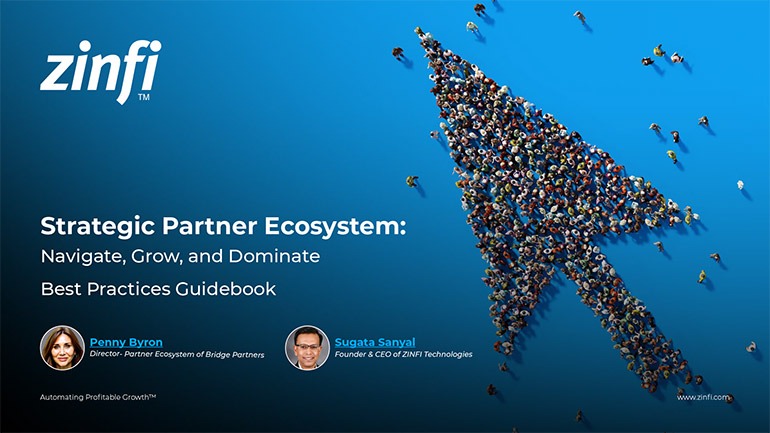 Strategic Partner Ecosystem: Navigate, Grow, and Dominate
Strategic Partner Ecosystem: Navigate, Grow, and DominateDownload for FREE
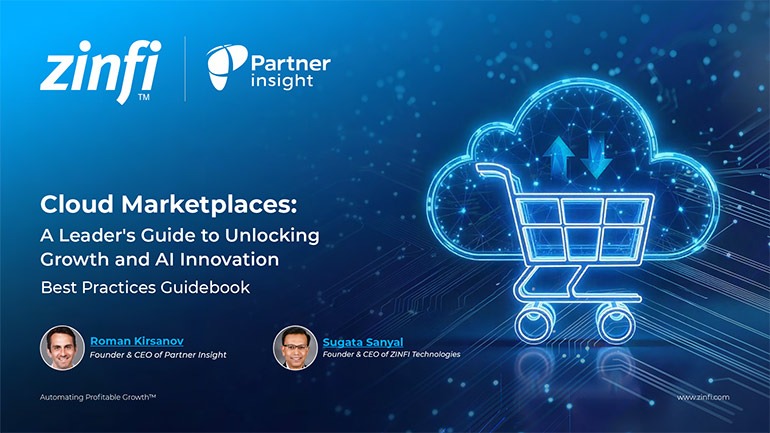 Cloud Marketplaces: Leader’s Guide to Unlocking Growth and AI Innovation
Cloud Marketplaces: Leader’s Guide to Unlocking Growth and AI InnovationDownload for FREE
 Getting More From Partner Performance: Guide to Measuring What Matters
Getting More From Partner Performance: Guide to Measuring What MattersDownload for FREE
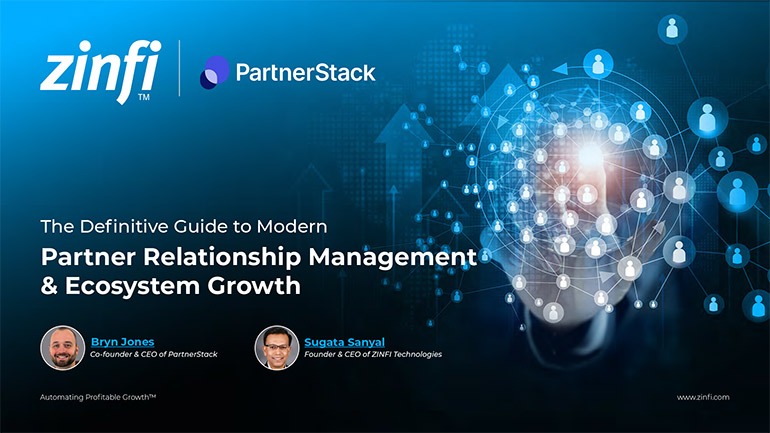 Guide to Modern Partner Relationship Management & Ecosystem Growth
Guide to Modern Partner Relationship Management & Ecosystem GrowthDownload for FREE
 Debunking the Entrepreneurship Myth Best Practices
Debunking the Entrepreneurship Myth Best PracticesDownload for FREE
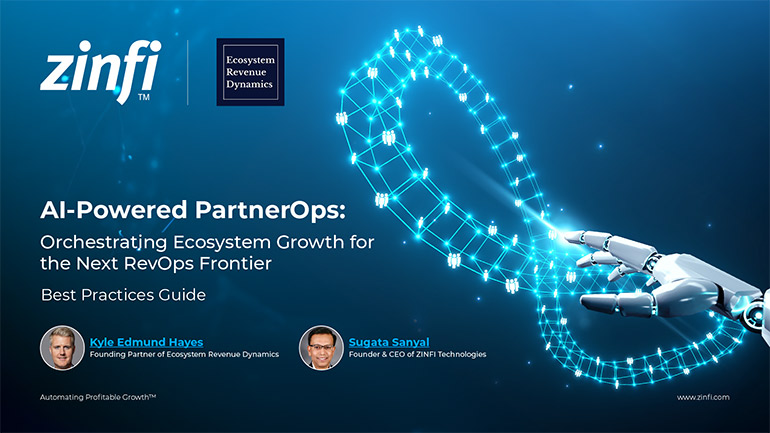 AI-Powered PartnerOps: The Next RevOps Frontier Best Practices
AI-Powered PartnerOps: The Next RevOps Frontier Best PracticesDownload for FREE
 Humanizing Brands: Guide to Strategic Partnering Best Practices
Humanizing Brands: Guide to Strategic Partnering Best PracticesDownload for FREE
 The AI-Powered Partner Ecosystem Best Practices
The AI-Powered Partner Ecosystem Best PracticesDownload for FREE








